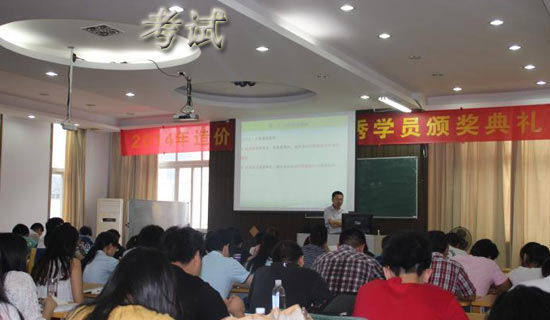- 相關(guān)推薦
翻譯資格考試中級(jí)考前模擬題
在考試的前幾天可以多做一些考前模擬題哦,以下是小編yjbys為您整理的一些關(guān)于翻譯資格考試中級(jí)考前模擬題,歡迎閱讀參考!

Some consumer researchers distinguish ____ (1) “rational” motives and “emotional” (or “non-rational”) motives. They use the term “rationality” ____ (2) the traditional economic sense that assumes ____ (3) consumers behave rationally when they carefully consider all alternatives ____ (4) choose those that give them the greatest utility (i.e., satisfaction). ____ (5) a marketing context, the term “rationality” implies that the consumer selects goods based ____ (6) totally objective criteria, such ____ (7) size, weight, price, and so on. “Emotional” motives imply the selection of goods ____ (8) to personal or subjective criteria — the desire ____ (9) individuality, pride, fear, affection or status.
The assumption underlying this distinction is ____ (10) subjective or emotional criteria do not maximize utility or satisfaction, ____ (11), it is reasonable to assume that consumers always attempt to select alternatives that, ____ (12) their view, serve to maximize satisfaction. Obviously, the assessment of satisfaction is a very personal process, based ____ (13) the individual’s own needs as ____ (14) as on past behavioral, social, and learning experiences. What may appear ____ (15) irrational to an outside observer may be perfectly rational ____ (16) the context of the consumer’s own psychological field. For example, a product purchased to enhance one’s self-image (such as a fragrance) is a perfectly rational form of consumer behavior. ____ (17) behavior did not appear rational to the person who undertakes it ____ (18) the time that it is undertaken, obviously he or she would not do it. ____ (19) the distinction between rational and emotional motives does not appear to be warranted.
Some researchers go so far ____ (20) to suggest that emphasis ____ (21) “needs” obscures the rational, or conscious, nature of most consumer motivation. They claim that consumers act consciously ____ (22) maximize their gains and minimize their losses; that they act not ____ (23) subconscious drives but from rational preferences, ____ (24) what they perceive to be ____ (25) their own best interests.
參考答案:
(1)between (2) in (3) that (4) and (5) in (6) on/upon (7) as (8) according (9) for
(10) that (11) However (12) in (13) on/upon (14) well (15) as (16) within (17) if
(18) at (19) Therefore (20) as (21) on (22) to (23) from (24) or (25) in
【翻譯資格考試中級(jí)考前模擬題】相關(guān)文章:
翻譯資格考試中級(jí)模擬題07-01
翻譯資格考試考前模擬題08-10
5月翻譯資格考試中級(jí)沖刺模擬題08-07